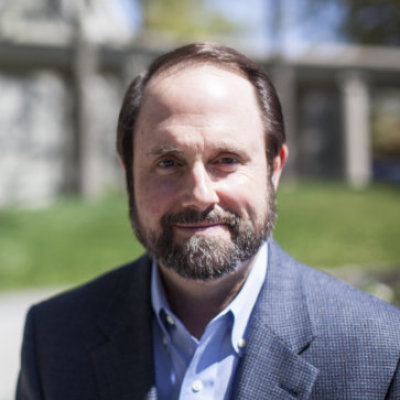Hope in hard days

The stock market plunged nearly three thousand points Monday, its second-worst day in history. Coronavirus deaths outside China have now surpassed those in China. The Supreme Court postponed oral arguments because of concerns over the novel coronavirus, apparently the first time the court has scheduled such a recess since the Spanish flu outbreak in 1918.
The Peace Corps has suspended operations and evacuated all volunteers. Schools have closed to more than thirty-two million students. The Trump administration released new guidelines that include avoiding groups of more than ten people. And we are learning that people without symptoms may be spreading coronavirus more than was previously thought.
Where do we find hope in these hard days?
On the medical front, the first human trial to evaluate a candidate vaccine against coronavirus began in Seattle yesterday. Other treatments are also being developed that, while not vaccines, hold promise and could be available more quickly. The world’s governments are taking very significant steps to support their economies. Social distancing measures will help to keep people from becoming infected, infecting others, and overwhelming our medical resources.
But there is an additional source of hope to which Christians can turn in days like these.
When the plague came to Wittenberg
The bubonic plague struck Wittenberg, Germany, in August of 1527. This disease was especially horrific: in just one day, an infected person could show signs of delirium, fever, speech disorders, and loss of consciousness. Soon after, they would break out in large boils that infected the bloodstream and rapidly led to their death.
Martin Luther and his wife Katharina, who was pregnant at the time, were urged to flee the city. However, they chose to stay in order to minister to the sick and dying.
When asked by Christians in another city for advice, Luther wrote a pamphlet that is as remarkable today as when he produced it. Titled “Whether One May Flee From a Deadly Plague,” it combines realism and faith in a way that is powerfully relevant to our crisis.
Luther counseled his readers to utilize medicine and intelligence “to guard and to take good care of the body so that we can live in good health.” As a result, he stated, “I shall fumigate, help purify the air, administer medicine, and take it.” He also practiced what we call social distancing: “I shall avoid places and persons where my presence is not needed in order not to become contaminated and thus perchance infect and pollute others, and so cause their death as a result of my negligence.”
With this caveat: “If my neighbor needs me, however, I shall not avoid place or person but will go freely.” He understood the urgency of sharing the gospel so as to lead the sick to saving faith before they died and to minister to believers in their final days.
“Everyone who lives and believes in me shall never die”
As it turned out, Martin and Katharina Luther were spared from the plague. But they did not know this when they chose to stay behind to care for the sick of their community.
They could risk their lives to serve others because they were not afraid to die. Their hope was in proper procedures and medical treatments, but even more, it was in Christ. They trusted their Lord to protect them in life and to bring them to heaven in death, whenever it came.
My point is not that we should refuse the urgent calls to social distancing that are absolutely crucial to slowing the spread of the pandemic. To the contrary, as one primary care physician notes, we must adopt such critical measures immediately.
My point is that choosing to hope in God as the Luthers did sustains us as nothing else can. It reminds us that the worst that can happen to us leads to the best that can happen to us. The moment we close our eyes on this diseased, fallen planet, we open them in God’s perfect paradise. When we take our last breath here, we take our first breath there.
As Jesus said, “Everyone who lives and believes in me shall never die” (John 11:26).
“He must win the battle”
To help us claim such hope, let’s close by making Martin Luther’s most famous hymn our confession. He wrote “A Mighty Fortress Is Our God” two years after the plague and perhaps in response to it. It begins,
A mighty fortress is our God, a bulwark never failing;
Our helper He, amid the flood of mortal ills prevailing.
He admits,
Did we in our own strength confide,
our striving would be losing,
were not the right Man on our side,
the Man of God’s own choosing.
You ask who that may be?
Christ Jesus, it is he;
Lord Sabaoth his name,
from age to age the same;
and he must win the battle.
As a result, Luther concludes,
Let goods and kindred go, this mortal life also;
The body they may kill: God’s truth abideth still,
His kingdom is forever!
Is this hope yours today?
Originally posted at denisonforum.org




























